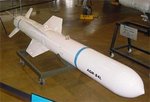It certainly is true that Argentina didn't count on a British military reaction. I find it amusing that the Argentine government abandoned the islands then still layed claim to them. The British government laughed it off but could have invaded Argentina itself, if it wanted.
Argentina didn't stand a chance. Britain organised a task force capable of the job in three days, that alone is a remarkable feat.
From my dad's experience he's got various opinions on the British forces out there. He thought the reaction was extremely quick and was shocked to see himself moved from RAF Odiham down to Southampton almost straight away to load up Chinooks on to the Atlantic Conveyor. By the way, my dad wasn't actually with a squadron at the time. He was with the Aircraft Servicing Flight (ASF). Although squadrons have their own technicians, a lot of the Chinooks had to go to ASF because the squadron wouldn't be able to deal with it.
When he got to Port Stanley, after a painful flight in a Hercules (What flight in a Hercules isn't painful?) they didn't even have him on the list to be there. So, he was stuck in Stanley for a week until the Chinook team at Kelly's Garden reported him AWOL. It wasn't until a lot of paper work and shouting between commands that they finally realised where my dad was, in Stanley! He had been ordered to the Falklands by name to sort out some Chinooks that had been grounded for weeks - three Chinooks to be exact.
Kelly's Garden is in the middle of nowhere and the British High Command basically forgot about them. They had none of the luxuries, only food and water. But he did have the luxury of sleeping in a sheep shed! And found it amusing chasing the penguins so the other people could take pictures of them as they ran away from my dad towards them. And they weren't even allowed to shoot the sheep for more food.
After a few months like that, they finally flew in some cabins for them to sleep in. The war was over by now but he was there for six months. And since he'd flown down, none of his tour of duty was spent on a ship. During the war, and after it while still in the Falklands, he did the odd flight in a Chinook sat on the back ramp with the MG.
When he got back to Stanley he was in serious trouble because he had long hair. In Kelly's Garden they didn't have the luxury of a barbers, so he came out after 6 months with hair down to his shoulders. He got to see some high ranking officer collapse and die of a heart attack. And he also got to see a Phantom crash into a mountain.
There's more to his time in those horrible islands but I can't remember at the moment.
Argentina didn't stand a chance. Britain organised a task force capable of the job in three days, that alone is a remarkable feat.
From my dad's experience he's got various opinions on the British forces out there. He thought the reaction was extremely quick and was shocked to see himself moved from RAF Odiham down to Southampton almost straight away to load up Chinooks on to the Atlantic Conveyor. By the way, my dad wasn't actually with a squadron at the time. He was with the Aircraft Servicing Flight (ASF). Although squadrons have their own technicians, a lot of the Chinooks had to go to ASF because the squadron wouldn't be able to deal with it.
When he got to Port Stanley, after a painful flight in a Hercules (What flight in a Hercules isn't painful?) they didn't even have him on the list to be there. So, he was stuck in Stanley for a week until the Chinook team at Kelly's Garden reported him AWOL. It wasn't until a lot of paper work and shouting between commands that they finally realised where my dad was, in Stanley! He had been ordered to the Falklands by name to sort out some Chinooks that had been grounded for weeks - three Chinooks to be exact.
Kelly's Garden is in the middle of nowhere and the British High Command basically forgot about them. They had none of the luxuries, only food and water. But he did have the luxury of sleeping in a sheep shed! And found it amusing chasing the penguins so the other people could take pictures of them as they ran away from my dad towards them. And they weren't even allowed to shoot the sheep for more food.
After a few months like that, they finally flew in some cabins for them to sleep in. The war was over by now but he was there for six months. And since he'd flown down, none of his tour of duty was spent on a ship. During the war, and after it while still in the Falklands, he did the odd flight in a Chinook sat on the back ramp with the MG.
When he got back to Stanley he was in serious trouble because he had long hair. In Kelly's Garden they didn't have the luxury of a barbers, so he came out after 6 months with hair down to his shoulders. He got to see some high ranking officer collapse and die of a heart attack. And he also got to see a Phantom crash into a mountain.
There's more to his time in those horrible islands but I can't remember at the moment.







